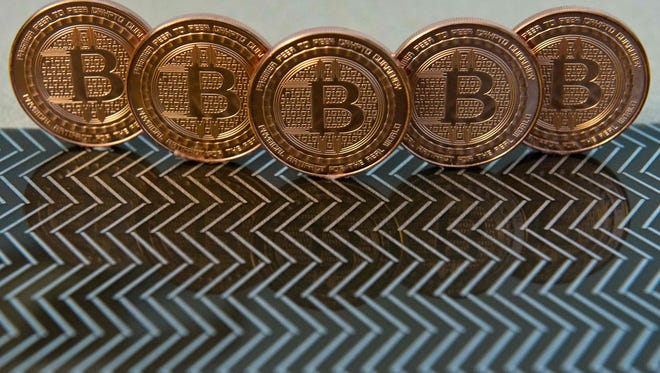Federal regulator rejects Winklevoss bid for first bitcoin exchange fund
The Securities and Exchange Commission Friday rejected a proposal for the first exchange-traded fund that would track the price of the digital currency known as bitcoin.

Announced in an order on the regulator's website, the ruling means average investors won't immediately get easier access to bitcoin-related trading. The decision also marks a setback for Bats Global Markets, which proposed the fund, the high-profile Winklevoss brothers, whose bitcoin trust would have been listed and traded, and for the digital currency itself.
Debuting in 2009, bitcoin is a decentralized digital currency traded from person-to-person, rather than through banks. It and has no issuing or regulating country.
The SEC ruling based the rejection on its finding that "significant markets for bitcoin are unregulated." As a result, the Bats exchange has been unable to reach security surveillance sharing agreements that would "help address concerns about the potential for fraudulent or manipulative acts and practices," the order said.
However, the SEC left open the door to eventual approval of bitcoin-related trading as the digital currency gains increased acceptance and usage.
Over time, "regulated bitcoin-related markets of significant size may develop," the order said. "Should such markets develop, the Commission could consider whether a bitcoin" exchange-traded fund would be consistent with the SEC's security requirements.
Bitcoin, which had traded as high as $1,325.81 on Friday, plunged roughly 6% to $1,120 shortly after the SEC action, according to CoinDesk.
Crytpocurrency bitcoin reaches all-time high
Bats, which would have hosted the proposed fund's trading on its BZX Exchange operated by CBOE Holdings, is "reviewing the SEC’s notice very intently and will have no further comment," said spokeswoman Hannah Randall.
Cameron and Tyler Winklevoss, the brothers who famously argued they had been misled when they agreed to settle their lawsuit that claimed Mark Zuckerberg stole their idea to launch Facebook, could not immediately be reached for comment on the setback to one of their latest financial ventures.
Their company website features plans for Gemini, a "fully regulated, fully compliant, New York-based bitcoin exchange for both individuals and institutions alike."
Bitcoin advantages include low exchange fees, no variance in value by country and accounts that cannot be frozen. Unlike paper money, where governments decide how much currency to issue, the digital currency is generated by "miners" who use special software to solve mathematical problems and are then issued bitcoin in exchange.
In its comment letter to the SEC, the Bats exchange said increasing strength and resiliency of the global bitcoin marketplace would reduce potential price manipulation of the digital currency.
However, other commenters said most bitcoin trading volume is conducted on unregulated exchanges outside the U.S. Financial practices on those exchanges significantly influence the price discovery process for bitcoin, the commenters said.
Federal investigators spotlighted one dark side of bitcoin usage with the 2015 criminal trial of Ross Ulbricht, the accused mastermind of Silk Road, the darknet drug-trafficking site that served as an underworld version of eBay for a worldwide network of drug dealers and users. All transactions on the site were conducted in bitcoin as part of a bid to avoid identification of buyers and sellers.
Silk Road 'darknet' boss found guilty of running massive drug website
Ulbricht was found guilty, and is now appealing his sentence of life in prison.
Contributing: Elizabeth Weise
Follow USA TODAY reporter Kevin McCoy on Twitter: @kmccoynyc